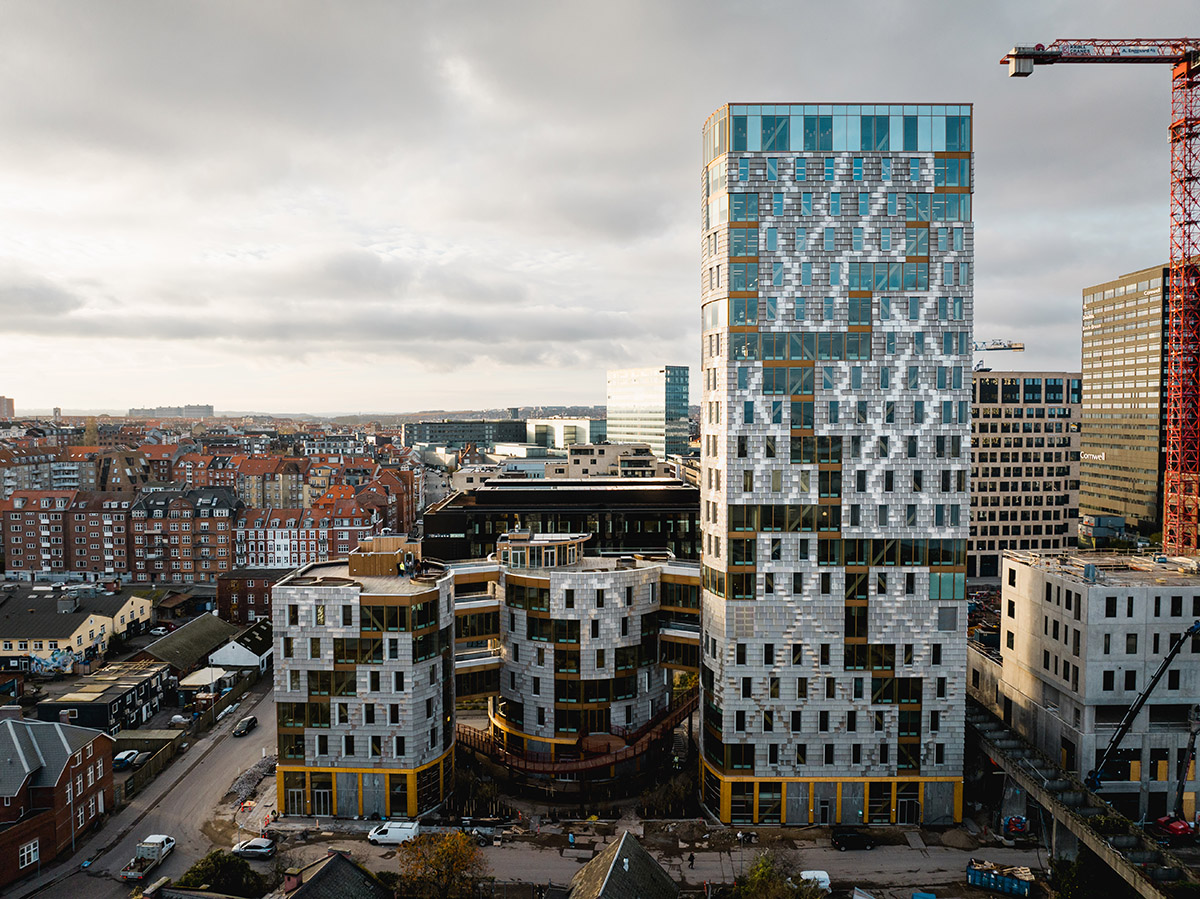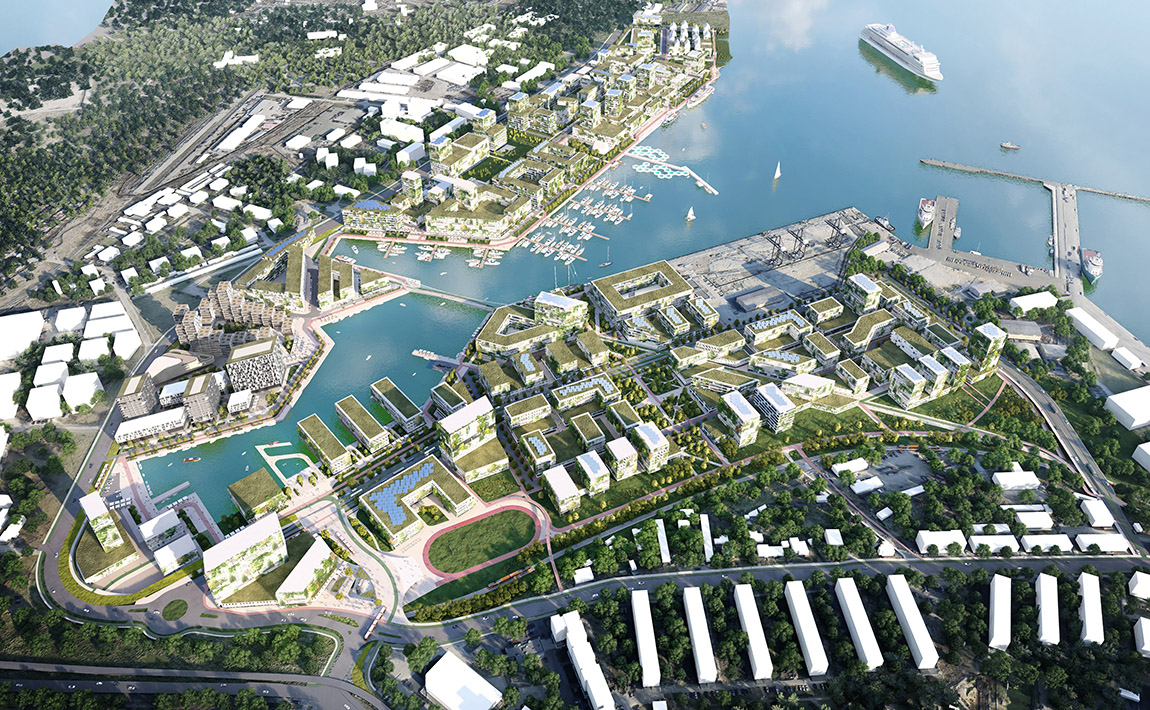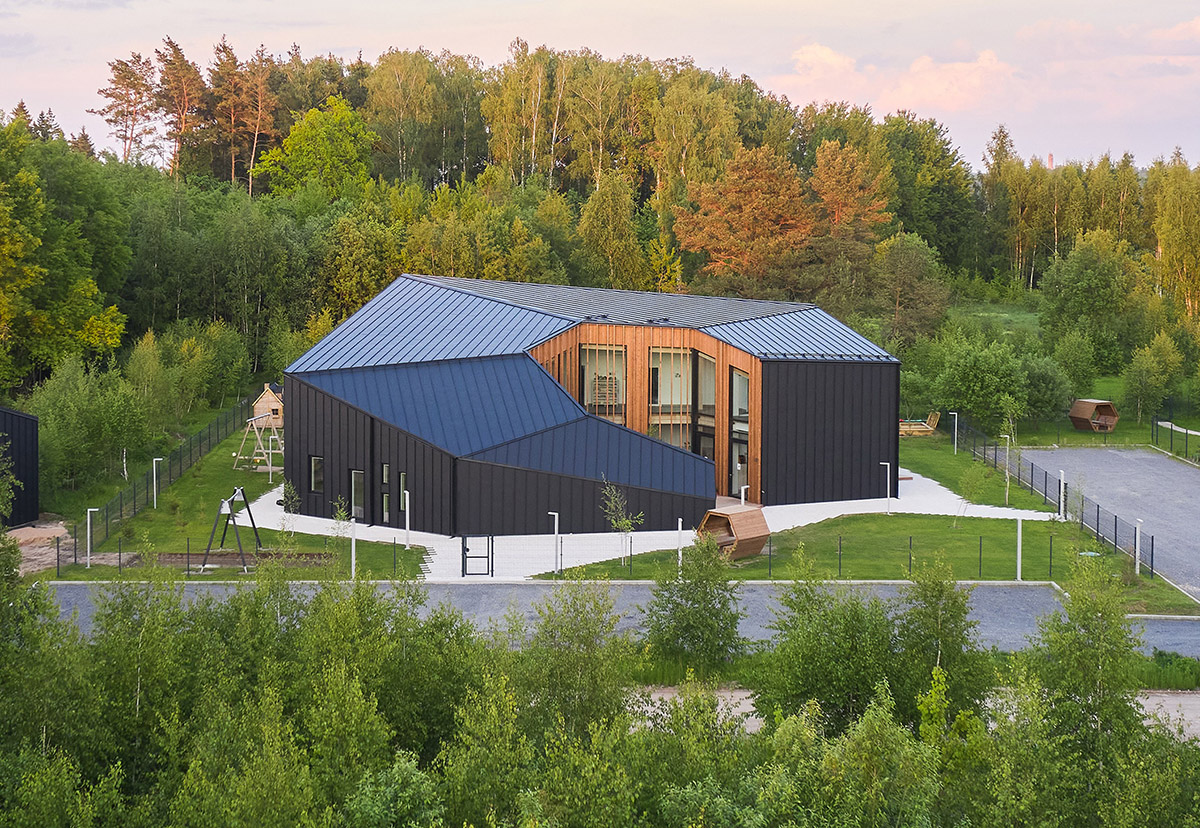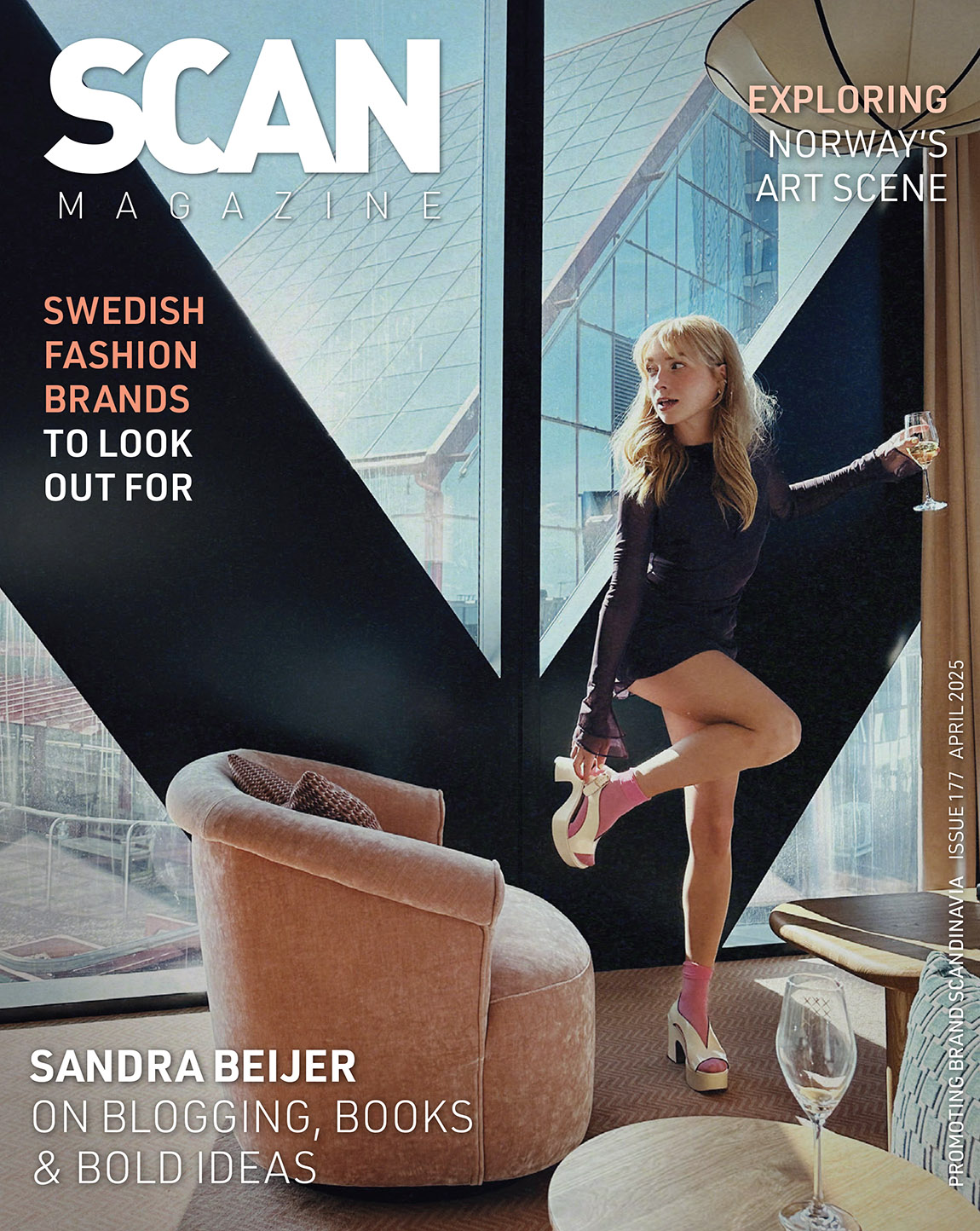Erik Giudice Architects: Sustainability the Scandinavian way
By Amanda Ottosson | Photos: Erik Giudice Architects
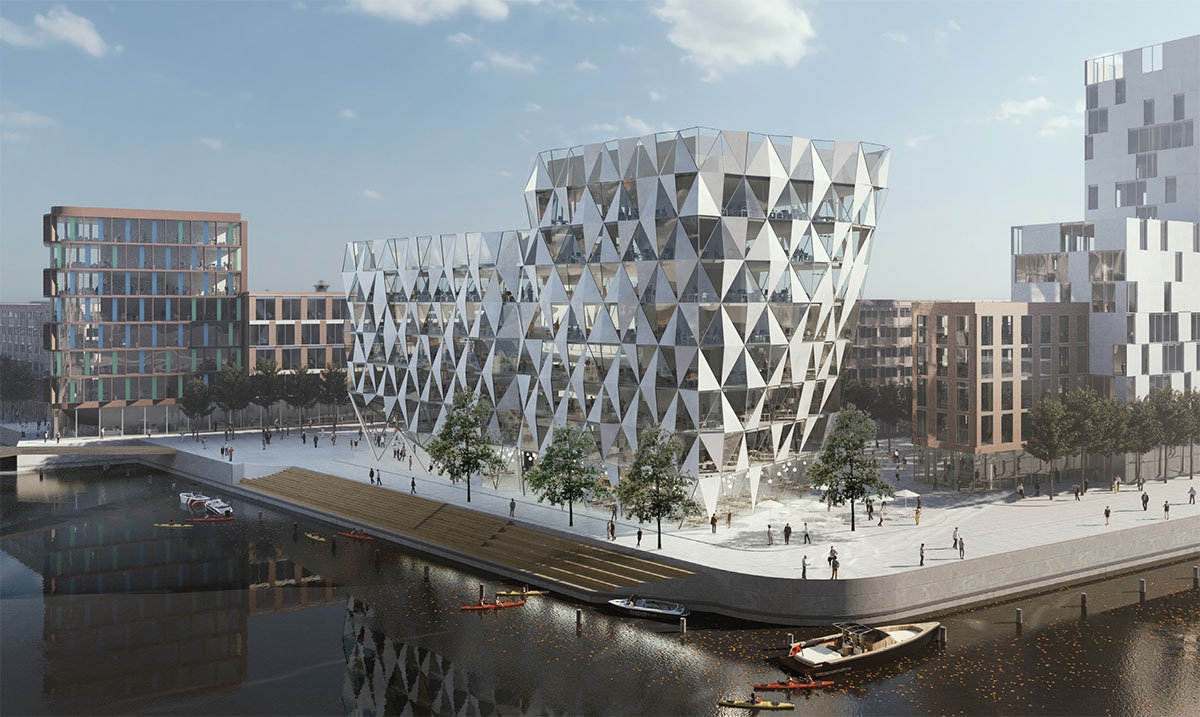
Prisma - Innovation hub in Helsingborg
Erik Giudice Architects create modern architecture with ties to traditional roots, underpinned by a strong focus on sustainability.
Sustainability is a buzzword thrown around by many in the urban development industry, but few live and breathe it the way Erik Giudice Architects (EGA) do. Founded by Swedish-Italian architect Erik Giudice, the firm has offices both in Sweden and France, and works internationally with architecture and urban planning.
Key in all its projects is the materials used throughout. Wood makes an appearance time and time again, inspired by Giudice’s early brush with the material during his apprenticeship in his uncle’s woodworking shop at 16. Wood is also easily accessible in Scandinavia, which has meant that an architectural tradition has formed around it. It’s not just Giudice’s personal connection to the material that appeals, however; it’s also its sustainability credentials.
“There have been attempts to make other materials, for example concrete, more sustainable, but we prefer working with wood because it’s just inherently sustainable. You don’t have to try to make it something it’s not,” he says.

Left: National Wolesale Market in Nantes. Photo: Luc Boegly. Right: The Athletes Village in Paris.
Focus on impact
This is something that the firm tries to bring to all its projects – that simple focus on doing what’s right, not only for the environment but also for the communities they work in. This approach is evident in all EGA projects, from museums and sport stadiums to housing, with one future office building in Malmö being the first to gain NollCO2 certification, verifying that it’s a climate-neutral building. This marks it as one of the most sustainable projects in Sweden, with its wooden frame and biomaterials used throughout – another signature of the firm.
This is especially important when working with different communities the firm may be less familiar with. Its recent work on a community centre in Paris, for example, was done with a clear view of what the residents of the area were in need of. It’s a more holistic way of looking at sustainability: it’s not just about how a project affects the environment, but also about the social aspects and how the project affects the people who interact with it; firstly, in terms of materiality – while wood is easily accessible in Scandinavia, it may still be less so in other parts of the world – and secondly, an equally important dimension, in how the finished project fits into the community it serves.
“We’re quite an international office, both in terms of the people who work here and in how we work on our projects. When we undertake a project in a country we’re not as familiar with, we make sure to work with local experts. It’s important to collaborate with someone who understands the context from a materials perspective, but also from a cultural perspective,” Giudice explains. “We never want to build anything that seems like it has no connection to the area; we want to make sure that it makes sense alongside everything around it. We’re always introducing innovation and a different way of thinking about things, but it needs to be innovation that makes sense for the area. ”
Designing for the long term
Even on the home turf, there are opportunities for thinking bigger and letting a long-term view influence the project. The eco-quarter in Ile-Saint Denis is one such project, designed by EGA to provide housing for athletes during the 2024 summer games hosted in Paris. It’s a bit of a misnomer to say that athlete housing is what it’s been designed for, as the primary thinking has been around what can be done with the structure after the event is over.
Constructed with a long-term perspective in mind from the outset, the buildings have been designed to easily convert into office space and housing. The design uses modular components that will be easy to remove and reuse. The approach is groundbreaking and provides a new path for the construction industry towards a circular economy.
“We are seeing that this long-term approach, where we are a few steps ahead from the beginning of the project, is highly appreciated by our partners. People are excited about getting onboard and putting our ideas into practice,” says Giudice.
And it’s not just about the firm’s own projects. Its focus on sustainability has informed a directive from the French government that more sustainable thinking and materials need to be used in construction going forward. Likewise, the firm’s work in Sweden is setting the standard for delivering innovation in a sustainable way. Project by project, EGA is leaving a lasting impact on the world.
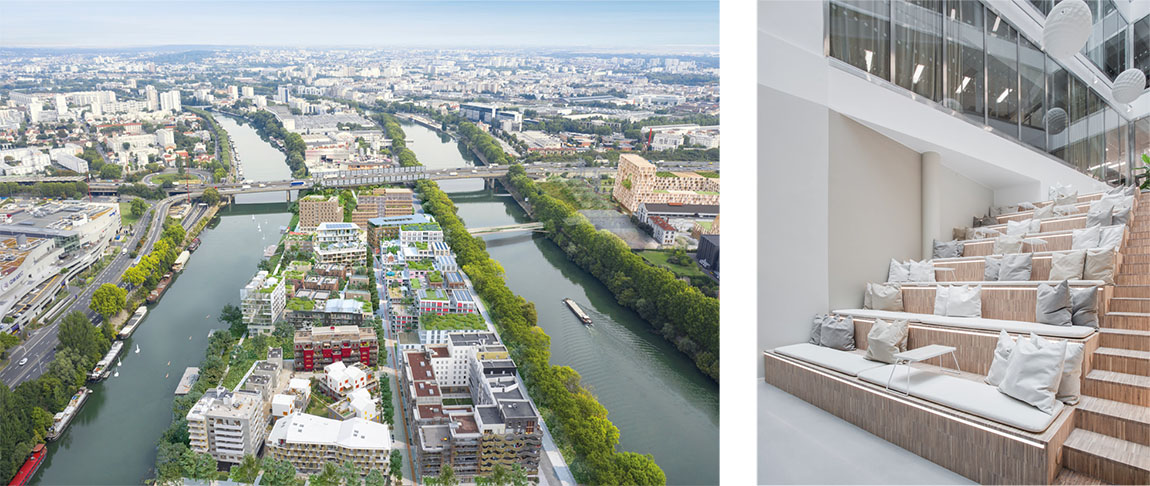
Left: The Athletes Village in Paris. Right: Prisma. Photo: Josefin Widell Hultgren
Web: erikgiudice.com Instagram: @ega_erikgiudice_architects LinkedIn: company/ega---erikgiudice-architects
Subscribe to Our Newsletter
Receive our monthly newsletter by email

